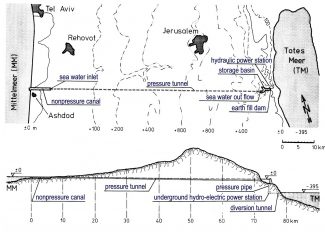Will leaked papers that, as the Guardian puts it, reveal the ‘slow death’ of the Middle East Peace Process end up being its saviour?
As the world waits for official comment from Israel on a series of secret papers detailing various peace negotiations over the past decade, one thing is abundantly clear: this is a game-changer.
For one, there is the scale of concessions on offer by the Palestinian side. If the papers are legitimate, it seems that once non-negotiable issues such as the right of return and the future of Jerusalem have not only been discussed, but offers have been tabled by the Palestinian side, all using language that is as specific as it is subdued. In short, it’s the type of offer that reflects a weak negotiating position on the Palestinian side, but in doing so it also reveals a genuine desire to move towards a final deal.
While the obvious weakness of the PA’s offer is sure to harm its support base, the fallout in Israel will be much more interesting. If the papers are verified- indeed, a very big if- it will be exceedingly difficult for the Netanyahu government to convince the Israeli population that it is pursuing a final peace deal with the Palestinians in good faith. The bulk of the Palestinian offers were purportedly made in 2008 and they were rejected by the Israeli side without any counter-offer being made. This would suggest that the Netanyahu government was not interested in signing off on a final agreement at the time, because if the opposite was true then why not make a counter-offer that, if anything, merely felt out the possibility of further concessions on these hitherto non-negotiable issues. Once a formerly-rigid issue is finally admitted into the arena of negotiation, the other party will generally re-double efforts to keep the discussion going as a way to firmly establish that said issue is ‘on the table.’
While this recent leak provides a fascinating window into the extent that these sensitive issues have been discussed, it should be noted that these deals- including the Palestinian concessions and the purported Olmert offer- were not tabled in a final, comprehensive form. Thus, the main point to be taken away from the Palestinian Papers is the sense of hopelessness and negotiation fatigue that exists on both sides. In other words, the papers reveal a process that is broken beyond hope of repair, and in doing so they may have planted the seeds for a new approach.
The most immediate consequence of the leak is the possibility of leadership change on both sides. In the West Bank, the PA will feel pressure from Palestinians who are tired of a government they perceive as weak, corrupt, and non-representative of them. In this widespread disillusionment with the political process, Hamas may discover an opportunity to make inroads in the West Bank. On the Israeli side, the Netanyahu government may soon be weathering its own fallout from a public who wants real peace and not just duplicitous claims to that effect.
The opinions, beliefs, and viewpoints expressed by the authors are theirs alone and don’t reflect any official position of Geopoliticalmonitor.com.




